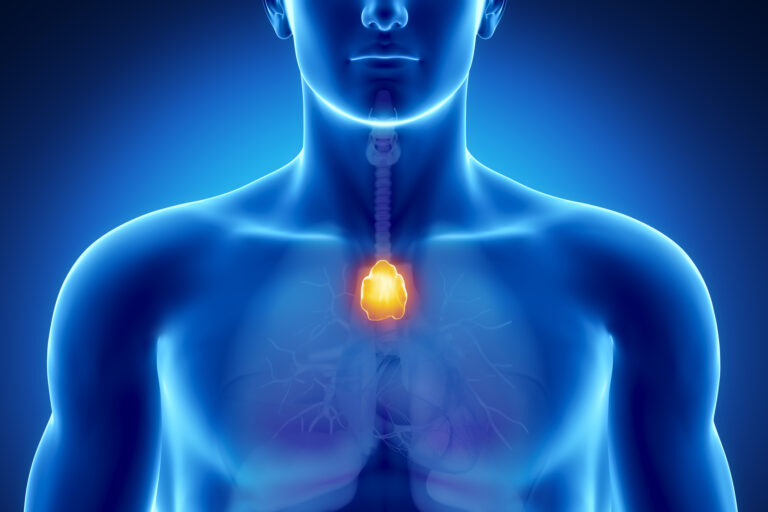
Living with chronic illness can be challenging, especially when dealing with an incurable and lifelong illness such as myasthenia gravis (MG). Myasthenia gravis is an autoimmune disease that causes skeletal muscle weakness by impeding the transmission of nerve impulses to muscle cells. Patients’ antibodies attack and destroy the communication between nerves and muscles, which leads to failure in muscle contraction.
Get IVIG Copay Assistance
Speak to a SpecialistCommon myasthenia gravis symptoms include:
- Weakness of eye muscles called ocular myasthenia
- Double vision (diplopia)
- Drooping of one or both eyelids (ptosis)
- Difficulty speaking or swallowing, or a change in facial expression
- Weakness throughout the body
The causes of this autoimmune disease are unknown, but early detection and prompt medical management can help patients better manage their symptoms. Living with myasthenia gravis can affect a patient’s quality of life due to a decreased ability to perform daily tasks. Loss of strength and chronic fatigue leads to patients losing motivation and developing symptoms of depression.
Depression and Myasthenia Gravis (MG)
Depression is a medical condition that impacts the physical and mental health of an individual and is one of the common psychiatric comorbidities experienced by MG patients. Depression occurs as a result of treatment side effects used to improve symptoms of myasthenia gravis. Depression not only interferes with the patient’s daily functional activities but also dysregulates the immune function and further exacerbates the myasthenia gravis condition, thereby diminishing the quality of life.
Depression symptoms experienced by myasthenia gravis patients include:
- Dissatisfaction with physical appearance
- Lack of confidence
- Mood changes
- Low energy
- Lack of pleasure (anhedonia)
Patients who experience more flares and myasthenic crises have higher scores of stress and depression. Since depression worsens myasthenia gravis and makes it harder for patients to manage their physical symptoms, healthcare professionals propose depression coping strategies to improve MG conditions.
Get Your IVIG Dose
At-Home InfusionDepression Coping Strategies for MG Patients
In order to help MG patients with depression, neurologists and care teams with expertise in managing myasthenia gravis use a non-drug, holistic approach instead of recommending antidepressants to patients, since antidepressants do not work well and may worsen the MG condition by interacting with other drugs used for treating MG. The non-drug, holistic approach is considered a better option for reducing the progression of depression caused by myasthenia gravis. This type of approach has also shown promising results in MG patients by improving the overall quality of life.
Some of the depression coping options for improving MG conditions include:
Exercise
Daily exercise can ease MG symptoms and helps patients cope with depression. During physical activity, the brain releases chemicals and neurotransmitters which reduce fatigue and boost mood and cognition. It also allows MG patients to feel less depressed and more energized.
You can consult your provider to ask which type of exercise fits you best.
 Meditation and Mindfulness
Meditation and Mindfulness
Meditation and mindfulness are practices that provide a sense of calm, balance, and peace. These practices may benefit patients with MG and depression symptoms if practiced regularly.
Cognitive Behavioral Therapy (CBT)
Cognitive behavioral therapy is beneficial for treating comorbid depression, insomnia, and anxiety in patients with MG. This short-term therapy focuses on changing patient behavior or thinking related to MG issues.
Mental Health Therapy
Consulting a therapist may help patients cope with depression or other mental health problems that arise during the treatment of myasthenia gravis.
Social Support
Studies have reported that social and emotional support from family and friends improves physical and psychological outcomes in MG patients. Furthermore, interacting and sharing thoughts with other MG patients and medical professionals also helps to reduce depression and improve quality of life.
Some hospitals offer special programs to teach patients how to combat depression caused by chronic illnesses such as myasthenia gravis.
Can IVIG help?
Free IVIG Treatment InfoConclusion
Please contact your health care provider if you experience a depressed mood, lack of energy, loss of interest, or any other depression symptoms for at least two consecutive weeks. Managing depression can lead to an improved quality of life and help with the management of myasthenia gravis.
REFERENCES:
- Cherukupally KR, Kodjo K, Ogunsakin O, Olayinka O, Fouron P. Comorbid Depressive and Anxiety Symptoms in a Patient with Myasthenia Gravis. Case Reports in Psychiatry. 2020 Jan 8;2020.
- Qiu L, Feng HY, Huang X, Mo R, Ou CY, Luo CM, Li Y, Liu WB. Study of incidence and correlation factors of depression, anxiety, and insomnia in patients with myasthenia gravis. Zhonghua Yi Xue Za Zhi. 2010 Dec 1;90(45):3176-9.
- Bogdan A, Barnett C, Ali A, AlQwaifly M, Abraham A, Mannan S, Ng E, Bril V. Chronic stress, depression and personality type in patients with myasthenia gravis. European Journal of Neurology. 2020 Jan;27(1):204-9.
- https://neuro.psychiatryonline.org/doi/10.1176/jnp.13.1.116-a
 Meditation and Mindfulness
Meditation and Mindfulness












